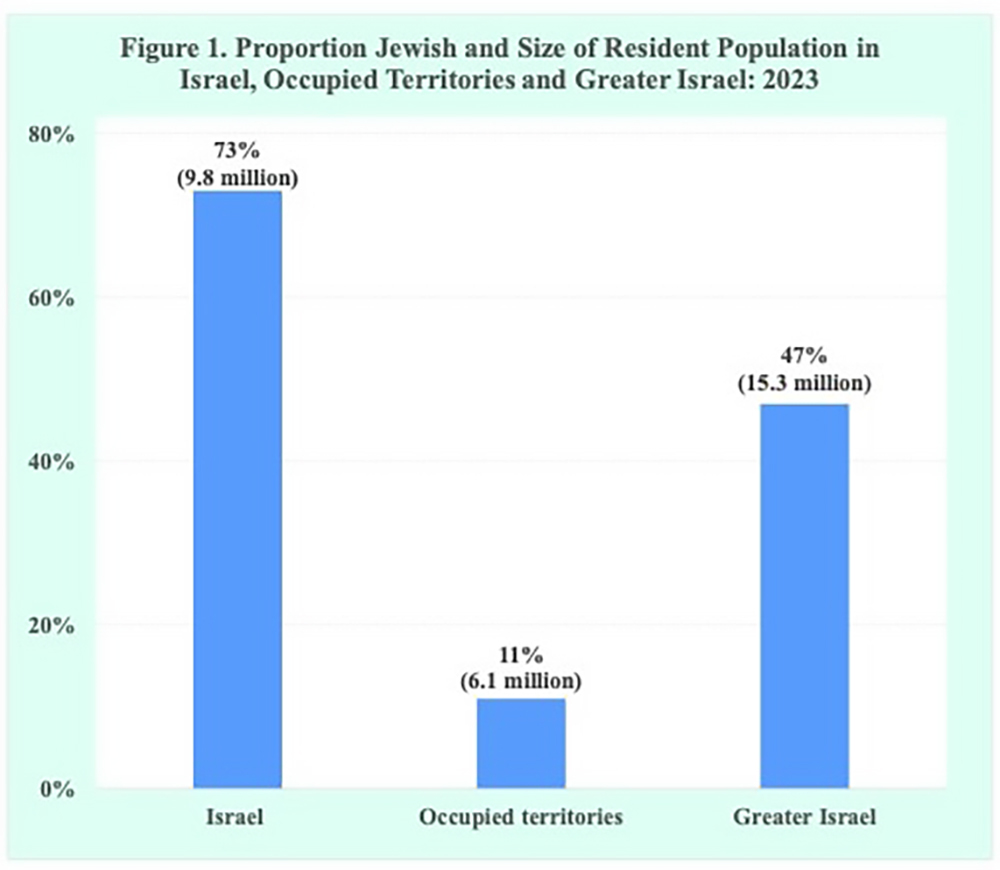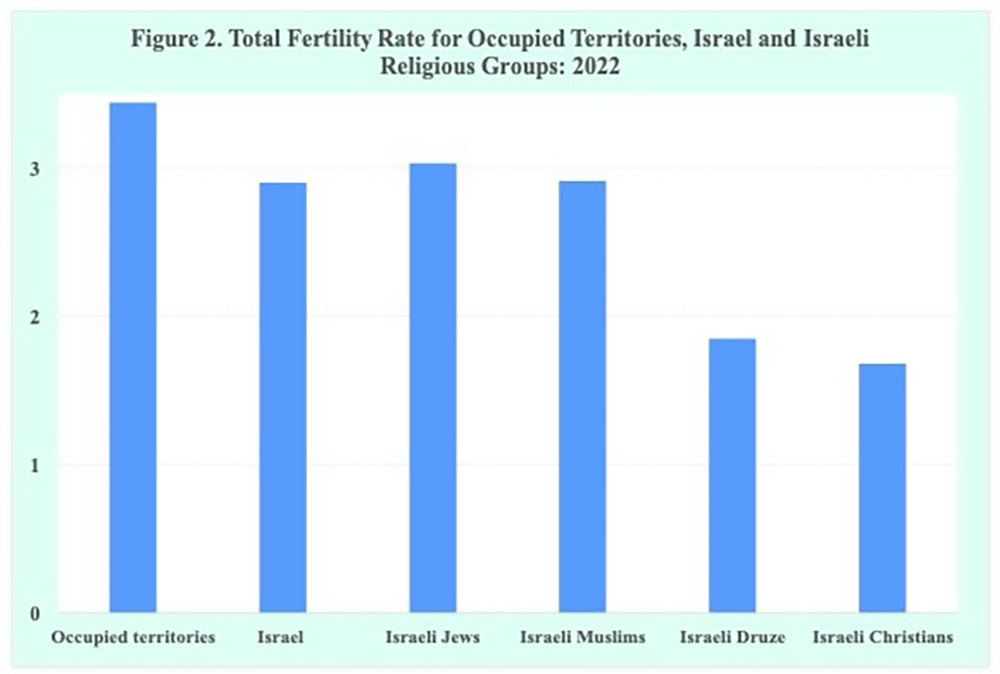The peace plan of Israel is Greater Israel (Eretz Yisrael Hashlema) with a dominant Jewish majority.
In contrast to Israel’s peace plan, many countries are promoting a peace plan that centers on a two-state solution. Basically, the two-state solution involves two states for two peoples: Israel for the Jewish people and Palestine for the Palestinian people.
While the state of Israel would remain essentially as it is, the future state of Palestine is envisaged to be made up of the occupied territories, i.e., the West Bank, the Gaza Strip and East Jerusalem as the Palestinian capital.
The Israeli government has clearly expressed its opposition to the creation of a Palestinian state in the occupied territories and has no intention in living side by side with Palestinians. In support of that position, the Israeli Knesset, by a vote of 99 to 11, backed the Israeli government’s decision to reject any unilateral recognition of Palestinian statehood.
In addition, the government’s rejection of a Palestinian state is in line with the current views of most Israelis. A Gallup poll conducted near the close of 2023 found that a clear majority of the Israeli public, 65 percent, do not support the existence of an independent Palestinian state. The Israeli public’s opposition to a Palestinian state has become even more adamant following the October 7 Hamas attack and the taking of Israeli hostages.
Moreover, the Israeli government has approved the building of thousands of new homes and designated new parcels of land for Israeli settlements in “Judea and Samaria," the biblical names preferred by the settlers and official terms used by the Israelis for the occupied territory of the West Bank.
The area of Judea and Samaria, i.e., the West Bank, is considered by many Jewish Israelis as the birthplace of the Jewish people and the location of the main Jewish religious sites.
In addition, settler ideology promotes the sanctity of its land as their Jewish homeland. One Israeli government official has said that the notion of a Palestinian people was artificial, “an invention” of the past century, and claimed that there’s “no such thing” as a Palestinian people.
The West Bank currently has a Jewish Israeli settler population of more than half a million living in 150 settlements and 128 outposts.
Those Israeli settlers in the West Bank reside among a population of more than three million Palestinian inhabitants. According to international, Israeli and Palestinian human rights organizations as well as independent observers, Israeli authorities are practicing apartheid and persecution in the West Bank.
The Israeli settlements in the West Bank are considered illegal under international law, as they violate the Fourth Geneva Convention. However, it is unlikely that an Israeli government will attempt to remove them for fear of violent domestic repercussions.
In fact, some in the Israeli government are already discussing annexing Judea and Samaria in a manner similar to the way Israel annexed East Jerusalem in 1980. Furthermore, some Israeli government officials are calling for the rebuilding of Jewish settlements in Gaza with plans to occupy it and move Palestinians out.
The long-term plan for Greater Israel includes the Palestinian residents being encouraged to emigrate, i.e., expulsion or another Nakba. The mass expulsion of Palestinians from the occupied territories and the Israeli expansion in those areas are considered needed in order to maintain a dominant Jewish majority in Greater Israel.
Israel’s national security minister has emphasized that Israel must promote a solution to encourage the emigration of Palestinians in the territories. Israel’s finance minister and senior lawmakers expressed support for the large-scale transfer, i.e., about 90 percent, of the Palestinian population in Gaza as a solution to Israel’s security concerns.
Some Israeli government ministers and their many supporters view the October 7 Hamas attack as an opportunity to promote a Greater Israel agenda with the expansion of settlements and Palestinian dispossession. In addition, in its 10-page document dated October 13, 2023, the recommended preferred course of action of the Israeli Ministry of Intelligence is the forcible and permanent transfer of Gaza’s 2.2 million Palestinian residents to Egypt’s Sinai Peninsula.
Also, Israel’s prime minister foresees the mass transfer or expulsion of Palestinians out of Gaza as a positive outcome of the Hamas-Israel war. He also insists that Israeli ground forces will launch an offensive into the city of Rafah.
Some countries, including the US, have expressed opposition to an Israeli ground offensive into Rafah that risks additional civilian deaths and the further displacement of Palestinians, potentially into neighboring countries. The UN Secretary-General has described the conditions in Gaza as a “moral outrage," expressed solidarity with Palestinians in Gaza and called for an immediate cease-fire.
The United States is also pushing for a halt in the fighting in Gaza and recently introduced a resolution to the UN Security Council calling for “an immediate and sustained cease-fire” and the release of the hostages. China and Russia vetoed the US resolution, saying it did not go far enough to end the Hamas-Israel war, aimed at ensuring the impunity of Israel and written with US political interests in mind.
Recently, however, the UN Security Council successfully adopted a resolution addressing the Hamas-Israel war. The resolution demanded an immediate cease-fire for the next two weeks leading to a lasting sustainable ceasefire, the immediate and unconditional release of all hostages and the urgent need to expand the flow of aid into Gaza.
The US abstained from the vote and the remaining 14 council members voted for the resolution, which was proposed by the 10 elected members of the body. In addressing the resolution, Israel’s prime minister indicated that Israel’s military campaign will continue.
The plan for Greater Israel includes Israel, Jerusalem, the West Bank and the Gaza Strip. In other words, Greater Israel would encompass approximately the whole of the former British Mandate for Palestine, an area nearly the size of Belgium.
The current proportion Jewish in Israel’s population of about 9.8 million is a dominant majority of 73 percent. The proportion of Israel’s population that is Arab-Israeli is 21 percent, and the remaining 6 percent belong to other minority communities.
The resident population of Greater Israel would be approximately 15.3 million. That demographic total includes approximately 3.2 million Palestinians in the West Bank and 2.2 million Palestinians in the Gaza Strip. The proportion of Jews in the resident population of Greater Israel would be a minority of approximately 47 percent, or about 7.2 million Jews, with the remaining 8.1 million being non-Jewish residents (Figure 1).
 Source: Estimates from Israel and the United Nations.
Source: Estimates from Israel and the United Nations.
Further complicating the demographics for Israel is the fact that the fertility rate of the occupied territories is higher than Israel’s rate. While the total fertility rate for the occupied territories in 2022 was 3.4 births per woman, the rate for Israel was about half a child less at 2.9 births per woman. Within Israel, however, the fertility rate of Jews is higher than the rates for Muslims, Druze and Christians (Figure 2).
 Source: Estimates from Israel and the United Nations.
Source: Estimates from Israel and the United Nations.
In contrast to Israel’s peace plan leading to Greater Israel, America is attempting to resolve the Israeli-Palestinian conflict with President Biden’s promotion of the two-state solution.
That promotion has become a major political issue extending well into the US Congress and across the country. It is also contributing to an emerging rupture among Jewish Americans concerning the relationship between liberalism and Zionism and the contradiction between pursuing equal citizenship in America and defending group supremacy in Israel.
In addition, Biden’s policies on the Israeli-Palestinian conflict have influenced primary elections in a number of states and are also posing risks for his reelection bid. His policies have produced anger and disgruntlement among progressives, donors and activists especially given that the International Court of Justice and a US Federal Court have ruled that Israel’s military campaign in Gaza may amount to genocide.
Recently the US Senate majority leader publicly criticized the leadership of the Israeli government. The Democratic senator claimed that Israel’s prime minister had “lost his way” and called on Israel to have new elections.
Also, in light of Israel’s continued restrictions on entry of humanitarian aid, warnings of an imminent famine in Gaza, the displacement of almost 90 percent of its population and a death toll of no less than 32,000 Palestinians consisting mostly of children and women, President Biden has criticized Israel’s military actions as being “over the top”. He also warned that because of its “indiscriminate bombing” of Gaza Israel was losing its international support.
Members of the US Congress continue to express differing views on how to resolve the Israeli-Palestinian conflict with some questioning America’s continued military funding to Israel. In contrast, the Republican speaker of the House of Representatives has said that he plans to invite the Israeli prime minister to address Congress.
Recently, the US Congress passed a bill providing funding of $3.8 billion in military support to Israel, barring funding for the United Nations agency for Palestinians, UNRWA, until March 2025, and prohibiting US funding for the UN commission investigating potential war crimes committed in the occupied Palestinian territories and Israel.
It should also be noted that the Republican Party platform does not support a two-state solution that would result in a Palestinian state. The Republican position is in line with the Israeli government’s opposition to the establishment of a Palestinian state.
In addition, former President Trump has gone further accusing any Jewish person who votes for Democrats“ hates their religion” and hates “everything about Israel." He added that “the Democratic Party hates Israel.”
Moreover, the advisers who shaped Trump’s Middle East policies when he was president, including his son-in-law and his former ambassador to Israel, have amplified calls for the expulsion of Palestinians from Gaza and the annexation of the West Bank by Israel with Trump’s son-in-law saying that “Gaza’s waterfront property could be very valuable.”
The Biden administration’s advocacy for a two-state solution to resolve the Israeli-Palestinian conflict is clearly at odds with the stated position of the Israeli government, the majority of Israelis and the views of the Republican Party, former President Trump, his former advisors and many Americans.
As noted above, the Israeli government opposes the creation of a Palestinian state, is continuing to expand Jewish settlements and increase the numbers of settlers. Also with the aim of raising the Jewish proportions in the occupied territories, Israel is encouraging the emigration, displacement and departure of Palestinians.
Those policies, objectives and actions indicate that the peace plan of the Israeli government is the establishment of Greater Israel with a dominant Jewish majority. America’s reaction to Israel’s peace plan may be what Israel has become accustomed to over the past 75 years: acceptance with unconditional support.















